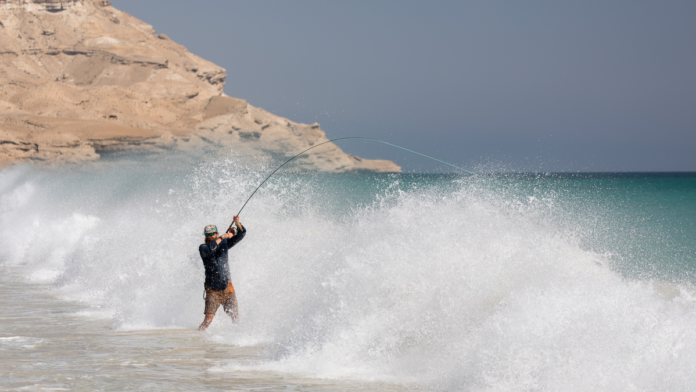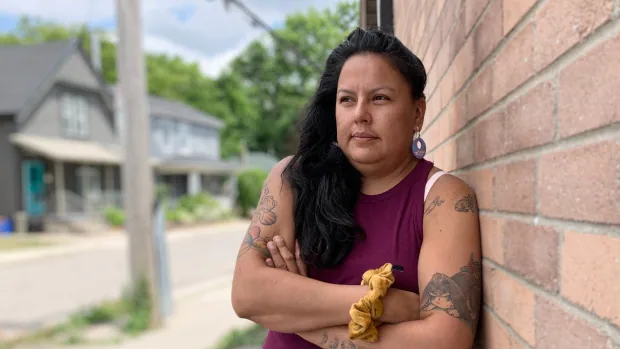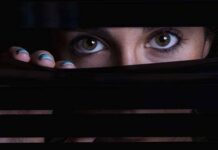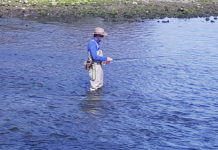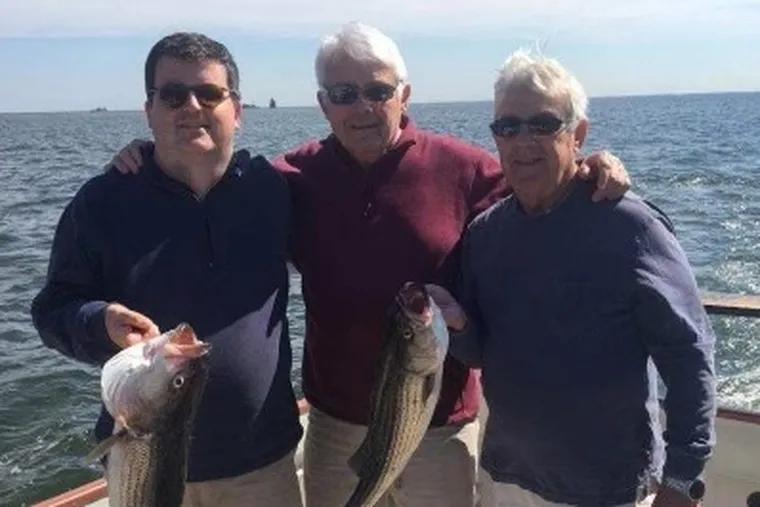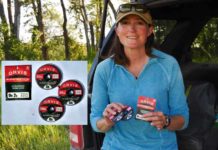“Stories from the Wild,” the 2022 Yeti Film Tour, recently wrapped its coast-to-coast road show—so, too bad, so sad if you never scored a ticket. But here’s your compensation prize: The headliner film for this year’s tour is now exclusively available for streaming on Field & Stream.
https://www.youtube.com/watch?v=BEMIRQ9ZAhQ
The film, A Thousand Casts, is a sort of mash-up biography and incredible adventure that follows one of the fly fishing’s most recognized anglers, Oliver White, as he treks to the Kingdom of Bhutan in search of golden mahseer on the fly. It’s difficult to say what is more absorbing—the pursuit of the mahseer, or the otherworldly wild life that brought White to the doorstep of one of the world’s most remote fisheries.
We caught up with White as he was standing on the bank of the South Fork of the Snake River in Idaho, watching drift boats ply the braids in front of the famed South Fork Lodge. Which White purchased with fishing pal Jimmy Kimmel two years ago. But that’s another story. For now, check out the story of White’s most recent life chapter.
F&S: I don’t want to ruin the storyline for viewers, but what many people might not understand was the challenge of getting permission to do this project. Tell me about what had to be done with the royal family of Bhutan to get the green light.
Oliver White: At the time we made the film, you could not fish in Bhutan without permission of the royal family. And beyond that, there is one river that could only be fished by members of the royal family. We wound up with permission, though, and agreed that one of the king’s bodyguards would have to be with me on that river. That created a really unique experience, to say the least.
We filmed in November of 2017, and Felt Soul Media debuted the film at the 2019 Mountain Film Festival in Telluride, Colorado, where it won the Vimeo Staff Pick Award. A week later we got a cease-and-desist order from Bhutan. They demanded that we cut anything that showed the bodyguard. That was a pain. And then Covid hit, so showings got shelved, and the delays just kept piling up.
F&S: While you were in Bhutan, your wife was pregnant with your first son, who is now four years old. Lots of changes. You’ve had a second child. Your signature lodge in the Bahamas was destroyed by Hurricane Dorian in September of 2019. Now you have a new lodge in Idaho with Jimmy Kimmel as a partner. In the film you say that you gain a sense of purpose from finding yourself in situations where you feel…your term was “unbalanced.” Has that changed in any way?
OW: Not at all, man. Part of my success is the fact that I’m a grinder. I put my head down and execute. When I’m in this creating mode—this mode of building something—I find a lot of enjoyment in that, but it does take a crazy kind of focus. When I was in Bhutan, the due date for our first child was November 28, and I was supposed to get home around November 21. There’s no way to get through that kind of situation without focus.
Everybody talks about balance of life, but the key for me is grinding it out and getting through those challenges and then giving myself time to come up for air and take perspective and see if and where and how to shift gears. That act of surfacing and recalibrating has been some of the most impactful and meaningful times I’ve had.
F&S: Buying one of the premier fishing lodges in North America seems pretty impactful and meaningful. Another phase of grinding coming up?
OW: It’s been a bittersweet change. My wife is Bahamian. My kids are Bahamian. The Bahamas was a great chapter in my life. But I love the West. It’s a good place to raise a family. I’m excited about raising feral boys who get to fish and hunt and ski. So yeah. Another time of focus.
And the South Fork is such an amazing river. I met Jimmy in the Bahamas, and we’ve been fishing together for almost a decade. Fly fishing is truly one of his passions, and we’re approaching the lodge as something like his second home. When he brings his friends and family here, it’s all his. When he’s not here, we open it up to the public.
The opportunity here is mind-blowing. The fishing is so good. Now we can make the difference of putting some love into the South Fork Lodge, with ownership on site.
F&S: Across much of the West, drought has hammered some of our most iconic waters. In many areas, pandemic-fueled crowds have gotten out of control. Climate change is upending entire ecosystems. It might be said that fly fishing in America is at a point of inflection. You’re obviously bullish on fly fishing’s future. Where is that positivity rooted?
OW: I totally agree. Climate change is real and is happening and having real impacts. Man, you see it so immediately in the West. We’ve had the Yellowstone floods, and there are rivers in Montana that are already on hoot-owl hours. I’ve done this my whole life and I’ve never seen the demand like I’ve seen right now. Which is a double-edged sword. I want people to love what I love, but they have to be able to experience it first. There is that fear that it gets loved to death.
But I think it’s cool so see how fly fishing is evolving with these challenges. The ethics associated with being an angler has evolved. From keeping fish wet to giving back to the resource, there’s a more conscientious effort across the board. And with so many people chasing trout, it’s awesome that it’s now considered cool to fly fish for carp. It’s cool to fly fish for smallmouth bass. When I started guiding, everybody looked down on those kinds of pursuits. So I’ve got a lot of respect for anglers that are pushing the boundaries of what fly fishing can be.
Credit: Source link

















